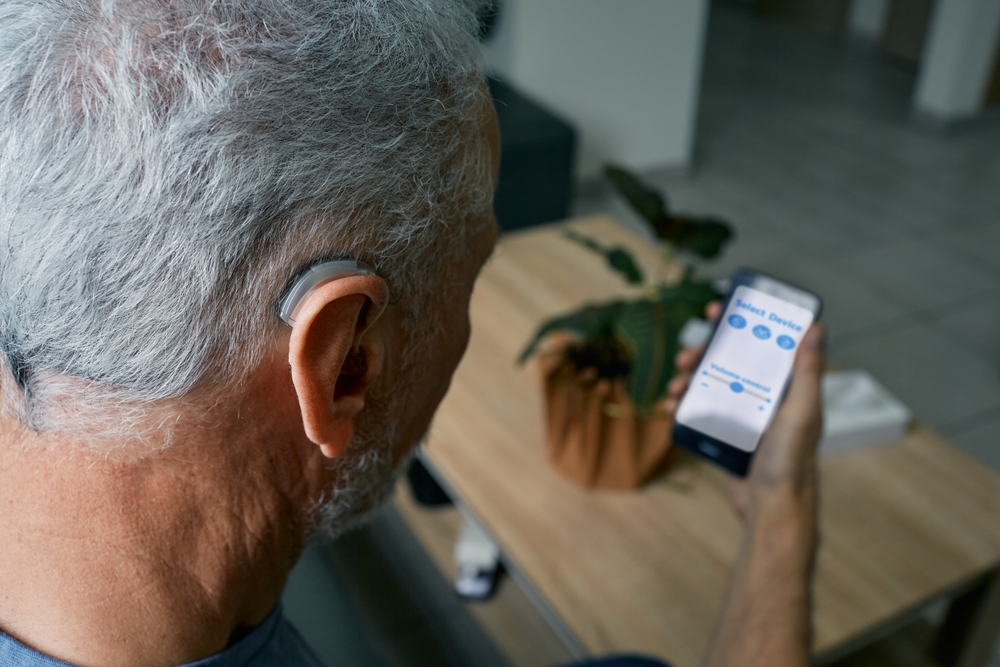Gwen is sitting with her hearing specialist being measured for her very first pair of hearing aids. And she’s feeling a little anxious. Or, you know, a lot anxious. Hearing aids are new to her, and she’s a little worried about how comfortable she’ll feel with a high-tech gizmo sitting in her ear canal–especially since she’s never been a huge fan of earplugs or earbuds.
Gwen’s concerns are not unique. Many first-time hearing aid users have concerns about the overall fit and comfort of their hearing aids. Gwen wants to wear her hearing aid. She’s looking forward to hearing her daughter’s infectious giggle again and listening to her music at a level not likely to cause problems with the neighbors. But will those hearing aids be comfortable?
Adjusting to hearing aids for the first time
So, are hearing aids uncomfortable? The short answer is that some people find them a little awkward at first. As with many things in life, there’s an adjustment period, which means your initial level of comfort will vary. But over time, you’ll get used to the feeling of your hearing aids and become more comfortable.
Sometimes it’s just nice to know that these adjustments are coming. Knowing what to expect can help you acclimate to your hearing aids in a healthy, sustainable, and comfortable way.
Adjusting to your hearing aid includes two parts:
- Getting used to the physical sensation in your ear: There might be some slight physical discomfort when you first start wearing your hearing aid, and your hearing specialist may recommend you start off wearing your hearing aids for only part of the day. However, there should not be any pain involved. If you’re feeling pain because of your hearing aid, you should definitely schedule an appointment as soon as possible.
- Adjusting to the improved sound quality: In some cases, it might be the sound quality that you need to adapt to. If you’re like most people, you waited to get hearing aids, and you’re not used to hearing a full range of sounds anymore. When you first start using your hearing aids, it may sound a bit loud, or you may hear noises that you aren’t used to hearing. At first, this can be distracting. For example, you may hear your hair scraping against your jacket when you move your head. This is normal. After a few weeks, your brain will block out the noises you don’t want to pay attention to.
If either the sound quality or the physical placement of the hearing aids is bothering you, it’s essential to talk to your hearing specialist about adjustments to increase your overall comfort and advance the adjustment period.
How can I improve the comfort of my hearing aids?
Thankfully, a few strategies have proven to be rather successful over the years.
- Start slow: If you’re breaking in your first pair of hearing aids, you shouldn’t feel as though you have to wear them all day, every day, right off the bat. You can build up to that. Start by wearing your hearing aid for an hour–or four hours–a day. That said, you’ll want to work up to wearing your hearing aids all day–but you don’t have to start there.
- Practice: The world might sound just a little bit different once you get your hearing aids. And it might take some time for your ears to adjust–especially when it comes to the spoken word. However, there are many exercises (reading along with an audiobook or watching your favorite movie with the closed captions on) that can help you get the hang of this a little more quickly.
- Get the right fit: Hearing aids are designed to fit your ears well. You’ll definitely want to discuss your fit with your hearing specialist right off the bat–but you’ll also want to schedule follow-up fittings to make sure everything is working properly and get the fit just right. You may also want to consider a custom fit hearing aid for maximum comfort and effectiveness.
Making your hearing aids more comfortable
Your hearing aids might feel a little uncomfortable for the first few days or weeks. But the more quickly you adjust to your new hearing aids, the faster they’ll become a comfortable part of your everyday life. Wearing them every day is crucial to make that transition work.
Soon all you will have to think about is what you hear–not how you hear it.


